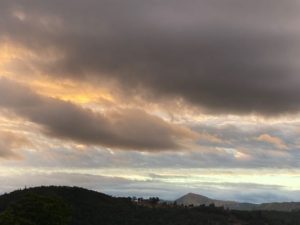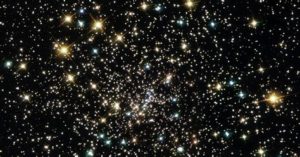![]()

![]()
![]()
![]() “For what can be known about God is plain to them, because God has shown it to them. For his invisible attributes, namely, his eternal power and divine nature, have been clearly perceived, ever since the creation of the world, in the things that have been made. So they are without excuse. For although they knew God, they did not honor him as God or give thanks to him, but they became futile in their thinking, and their foolish hearts were darkened.” Romans 1:19-21
“For what can be known about God is plain to them, because God has shown it to them. For his invisible attributes, namely, his eternal power and divine nature, have been clearly perceived, ever since the creation of the world, in the things that have been made. So they are without excuse. For although they knew God, they did not honor him as God or give thanks to him, but they became futile in their thinking, and their foolish hearts were darkened.” Romans 1:19-21
This is a wonderful time of year. The grass is green and the trees still have their blossoms. Every time I drive to or from Camas I am taken by the beauty of the fields, hills, and ravines. This morning as I was driving I was listening to two men having a debate.  One was an atheist and the other was a Christian who believed in theistic evolution. It was a strange conversation to listen to because I didn’t agree with either man. While I was looking at the absolute beauty of life around me, I was listening to two men discussing how that beauty came about over millions and millions of years of defects and rejects, culminating in thousands of different kinds of plants and animals. As I listened to what the men were saying while at the same time seeing what was around me, the words and the sights seemed in conflict to each other.
One was an atheist and the other was a Christian who believed in theistic evolution. It was a strange conversation to listen to because I didn’t agree with either man. While I was looking at the absolute beauty of life around me, I was listening to two men discussing how that beauty came about over millions and millions of years of defects and rejects, culminating in thousands of different kinds of plants and animals. As I listened to what the men were saying while at the same time seeing what was around me, the words and the sights seemed in conflict to each other.
 When I got to school I spent two hours judging projects at the Science Fair and got another huge dose of the wonders of the world. Exhibits on plants, animals, and the environment filled the gym. They outlined how detailed and functional and precise our world is. I thought back at the men’s arguments I had just heard and could just not accept the creation of the world through random acts of fineness. The complexity of the smallest organism all the way up to our largest animal begs for a designer. Our own bodies are testament to design. The function of the skeletal system, the muscular system, the cardiovascular system, the digestive system, the Endocrine system, the nervous system, the respiratory system, the lymphatic system, the urinary system, the reproductive system, and the integumentary system (which holds everything together) work together in perfect harmony for millions upon millions of people everyday. The miraculous existence of living things is a testament to the incredible handiwork of God. Yet, many believe
When I got to school I spent two hours judging projects at the Science Fair and got another huge dose of the wonders of the world. Exhibits on plants, animals, and the environment filled the gym. They outlined how detailed and functional and precise our world is. I thought back at the men’s arguments I had just heard and could just not accept the creation of the world through random acts of fineness. The complexity of the smallest organism all the way up to our largest animal begs for a designer. Our own bodies are testament to design. The function of the skeletal system, the muscular system, the cardiovascular system, the digestive system, the Endocrine system, the nervous system, the respiratory system, the lymphatic system, the urinary system, the reproductive system, and the integumentary system (which holds everything together) work together in perfect harmony for millions upon millions of people everyday. The miraculous existence of living things is a testament to the incredible handiwork of God. Yet, many believe there is not enough evidence for God.
there is not enough evidence for God.
Some see the wonder of creation but neglect the idea of a creator. Paul wrote the above words to the Christians in Rome in an attempt to show how many had replaced the creator with the creation as an object of worship. Those words are as relevant today as it was in Paul’s time. Actually, since the culture is degrading with time, it is probably even more relevant today than it was in those years following Christ’s death. Some people worship nature and some their own bodies, but worship of anything other than God is a misdirection of adoration.
 When we look at the intricate details of the smallest things in nature up to the huge and complex design of the whole universe, our only conclusion is there must be a designer (if we are objective). We who live here in Oregon can easily find ourselves in the predicament of worshipping creation. It is so wonderful here we can lose sight of Who has made things so wonderful here. Even as I sit here typing it is wondrous how my eyes see the page, my mind creates a thought and my fingers (slowly) type some words. The function of the human brain cannot be matched by anything man can make. Amazingly, other animals, be they less sophisticated, have brains, too. Every time we begin an activity hundreds, upon hundreds of messages are shooting through our bodies to bring about a desired outcome. It is almost beyond belief and to believe that nothing plus time brought this all about. Life is
When we look at the intricate details of the smallest things in nature up to the huge and complex design of the whole universe, our only conclusion is there must be a designer (if we are objective). We who live here in Oregon can easily find ourselves in the predicament of worshipping creation. It is so wonderful here we can lose sight of Who has made things so wonderful here. Even as I sit here typing it is wondrous how my eyes see the page, my mind creates a thought and my fingers (slowly) type some words. The function of the human brain cannot be matched by anything man can make. Amazingly, other animals, be they less sophisticated, have brains, too. Every time we begin an activity hundreds, upon hundreds of messages are shooting through our bodies to bring about a desired outcome. It is almost beyond belief and to believe that nothing plus time brought this all about. Life is incredible whether it is plant or animal.
incredible whether it is plant or animal.
I have often hear the phrase, “I am spiritual, but not religious. If I want to connect with God I go to the (insert favorite nature place here… river, mountain, camp, hike).” And who can blame us? There are so many places that are so serene and can give us such a variety of emotions- from peace to excitement. But what we can never forget is this- although these might be places for worship, they should not be places to be worshipped.
Every time we sit beneath a sky (like I did last night) it becomes a reminder, a lesson so to speak, about who God is. That reminder is what changed British Professor and Philosopher  Anthony Flew in 2004. He was regarded by many as the world’s most acclaimed atheist and when he renounced his atheism in favor of theism, it rocked the world of science as much as the church would have been rocked if Billy Graham suddenly renounced his Christian faith. What was the basis of Flew’s conversion? The evidence around him. He became fatigued by having to ignore the undeniable design of what he saw in the creatures and nature around him, in favor of a fortunate stroke of good luck that brought this altogether so nicely. He finally relented to the undeniable fact that there must be a designer.
Anthony Flew in 2004. He was regarded by many as the world’s most acclaimed atheist and when he renounced his atheism in favor of theism, it rocked the world of science as much as the church would have been rocked if Billy Graham suddenly renounced his Christian faith. What was the basis of Flew’s conversion? The evidence around him. He became fatigued by having to ignore the undeniable design of what he saw in the creatures and nature around him, in favor of a fortunate stroke of good luck that brought this altogether so nicely. He finally relented to the undeniable fact that there must be a designer.
We should always be in awe of the world around us. We should never take its beautiful design for granted. But we must also remember why  it is here – to point us toward God. Although nature points to Him, it should not be confused with Him. Paul says this when he writes, “Claiming to be wise, they became fools, and exchanged the glory of the immortal God for images resembling mortal man or birds or animals or reptiles (Rom 1:22-23).” Creation represents the greatness of God, and without Him it would not exist. Let’s never degrade God by putting His creation above Him. Check out the sky tonight and the trees tomorrow and thank Him for the wonderful signposts He has made that emphatically, undeniably, and unquestionably point to Him.
it is here – to point us toward God. Although nature points to Him, it should not be confused with Him. Paul says this when he writes, “Claiming to be wise, they became fools, and exchanged the glory of the immortal God for images resembling mortal man or birds or animals or reptiles (Rom 1:22-23).” Creation represents the greatness of God, and without Him it would not exist. Let’s never degrade God by putting His creation above Him. Check out the sky tonight and the trees tomorrow and thank Him for the wonderful signposts He has made that emphatically, undeniably, and unquestionably point to Him.